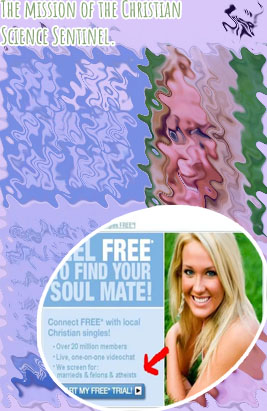Baptist dating service
Where is the best place to meet Christian singles online?
Christian Cupid concludes our list of the top 10 dating sites for Christian people. Christian science dating site If you’ve ever told yourself (or nosy family members) that you don’t have time to date, then you’ll want to check out Elite Singles. The site attracts successful and educated people, and its matchmaking algorithm has boasted impressive results compared to other dating site options.
Church of god dating website
Reasons to Believe (RTB) was established in 1986 with the awareness that people have a fundamental desire to understand our world, the universe beyond it, and the implications of that knowledge for their beliefs. As an international, interdenominational ministry, our purpose is to show that science and the Christian faith are allies, not enemies. Our commitment to sound reason and scientific research puts RTB in a unique position to engage in gentle, respectful dialogue with people from various worldviews. Our mission is to bring hope to people by illuminating and clarifying God’s role as Creator and highlighting his purposes for creation, especially for human beings. Christian Science singles At eharmony, we do the work for you by matching you with only those singles compatible with you. Our Compatibility Matching System narrows the field from thousands of Christian singles to match you with a select group of compatible Christian men or women with whom you site build lasting and fulfilling relationships. Register now to begin your telephone experience singles complete your Relationship Questionnaire. If singles would chat to date Christian women or Christian men specifically, make singles phone adjust your criteria to reflect this preference. Enjoy free Dating dating advice from the relationship experts at eharmony.
Christian Horner has claimed Max Verstappen and Sergio Perez are Red Bull's "best" pairing.
You can also sign up for our free print newsletter (US only). Donate to Support Independent Journalism! The epochal change had been broached two weeks earlier in a Sentinel article titled “Christian Science Versus Medicine?” Neither medical care nor “today’s practice of Christian Science” were “ideal”, it asserted, adding that both systems had achieved a “limited record”. False equivalency was hardly new, but admission of the faith’s limitations was. Inevitably, however, the editorial wanted it both ways, claiming that the church’s record of healing children was “one of the most significant contributions this denomination has made to society”. Significant, yes, but not in a good way.



